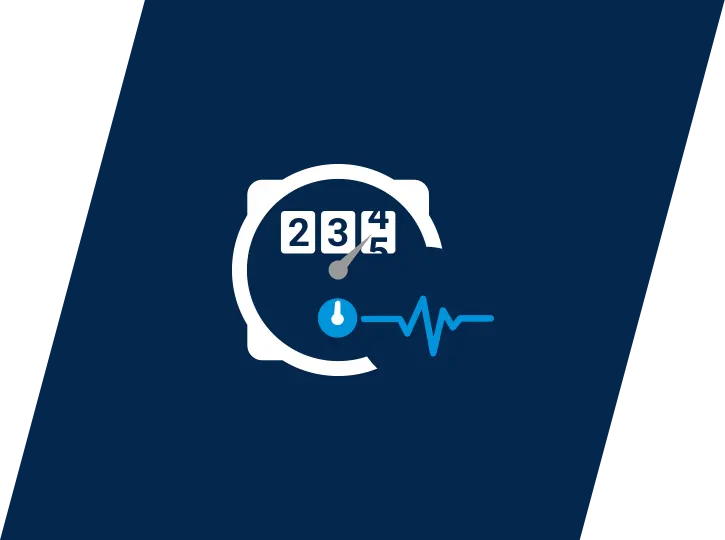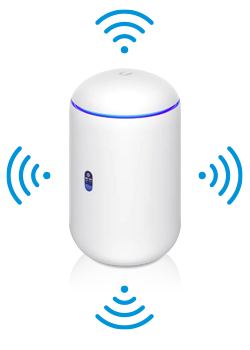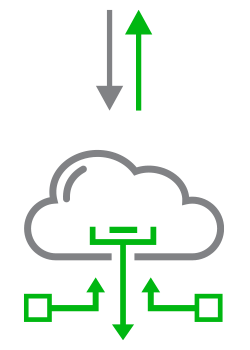Metering - Submetering
The installation of a Wireless Automated Meter Reading (AMR) system in commercial properties is a complex process that involves careful planning, coordination, and execution. Effective project management is crucial to ensuring that the system is installed correctly, within budget, and on schedule.
Submetering is the process of installing individual meters to measure the consumption of utilities like water, gas, or electricity for specific units within a multifamily or commercial property behind a master utility meter. This allows property owners to allocate utility costs based on actual usage, promoting fairness and transparency
Metering and submetering systems utilize similar meter types and AMR systems for processing the necessary data for allocating and recovering costs. The net result, in conjunction with cost recovery, is a 20% to 35% reduction in tenant usage. Additionally, individual tenants may reduce their individual usage by 2.5 times the average usage.

Meters - Submeters & Wireless AMR

Electric Meters - Submeters
are essential tools in commercial real estate for tracking individual tenant electricity consumption, allowing for accurate billing and utility cost recovery. By employing the right type of electric meter, property managers can ensure equitable cost allocation, enhance operational efficiency, and encourage energy conservation among tenants.

Gas Meters - Submeters
diaphragm meters are one of the most common types of gas meters, especially for smaller commercial units. They operate with internal chambers that expand and contract to measure gas flow. Choosing the right type of gas meter is crucial to streamline operations, enhance billing accuracy, and promote accountability among tenants.


Water Meters - Submeters
positive displacement and multi-jet meters are suitable for small to medium properties, while compound, ultrasonic, and smart meters are better suited for high-demand or multi-tenant buildings. Choosing the right water meter type is essential for effective tenant utility cost recovery in commercial real estate.

Smart Thermostats
are network thermostats, also known as smart or connected thermostats, are devices that allow remote control and monitoring of heating, ventilation, and air conditioning (HVAC) systems. In commercial real estate, network thermostats can play a crucial role in recovering utility costs from tenants by providing accurate, usage-based data, fostering energy efficiency, and enabling precise cost allocation.
Read Processing & Billing
Ratio Utility Billing Systems "RUBS"
is a method used in multi-tenant properties to allocate utility costs when direct metering isn’t feasible. It distributes expenses based on factors like square footage, occupancy, or a combination of variables, ensuring fair and equitable cost distribution. RUBS benefits include fair cost recovery, encouraging conservation, and promoting transparency. Proper implementation requires clear communication with tenants, regulatory compliance, and regular adjustments to reflect changes in usage patterns.
Read, Allocate, Bill and Collect
The utility billing process involves accumulating meter and submeter data, as well as utility cost allocation data, to bill individuals for their usage. This data is loaded into the billing system, where costs are allocated based on individual usage. A bill is then created and presented to each individual, detailing their usage and charges. Multiple payment options are provided, including check, money order, credit card, and ACH, to facilitate the collection of payments.

Rate Tables
are essential for the financial sustainability of utility billing services. They generate the revenue needed to cover operating costs, maintenance, and infrastructure improvements. There are various rate structures, such as flat rates, uniform metered rates, and block rates, to balance simplicity, equity, and conservation incentives. Most rate tables combine base rates, which cover fixed costs, with volumetric rates, which vary based on usage. Effective rate structures ensure fairness by considering factors like customer type and usage volume. Additionally, most billing rates are governed by local and state guidelines that must be adhered to, ensuring compliance and standardization across the utility services.
Payment Processing
in utility billing is crucial for enhancing customer satisfaction and operational efficiency. By offering multiple payment methods, such as checks, money orders, credit cards, ACH (Automated Clearing House) transfers, cash apps, and auto pay, utilities can cater to diverse customer preferences, making it easier and more convenient for customers to pay their bills on time. Online payment methods, including credit cards and ACH, provide quick and secure transactions, while cash apps offer flexibility and ease of use. Auto pay is a valuable monthly payment service that ensures timely payments without manual intervention. This variety reduces the likelihood of late payments and associated penalties, improving cash flow for the utility.
Additionally, automated and efficient payment processing minimizes administrative burdens, reduces errors, and lowers operational costs. Overall, streamlined payment processing fosters a positive customer experience, encourages timely payments, and supports the financial health of utility services.
Software Integration
Or APIs (Application Programming Interfaces) are powerful tools that allow different software applications to communicate with each other, share data, and enhance their capabilities. For customers, this means a more seamless and integrated experience.
For example, when you use a mobile app to check your utility bill, the app uses APIs to securely access your billing information from the utility’s database. This ensures you get real-time updates and accurate data. APIs also enable the integration of various payment methods, making it easier for you to pay your bills using your preferred method, whether it’s a credit card, ACH transfer, or a cash app. By facilitating smooth interactions between different systems, APIs help create a more efficient, user-friendly, and responsive service, ultimately improving your overall experience.
Build Automated Metering System
Property
Profile
Property
Utility Information
System
Parameter
Program
Overview
Program Bid &
ROI
ATI Energy
Our Company
ATI Energy Group
We are a technology-enabled energy service company offering a comprehensive suite of services and SaaS applications designed to reduce energy and utility costs, maintenance expenses, and the time spent managing energy expenses
Commitment
To Our Clients
- Focus on economically achievable energy efficiency.
- Ensure timely development and delivery of projects and services.
- Transparency and accountability through structured analytics to enhance financial and mechanical performance.
Commitment
To the Environment
- Respect the environment
- Reduce Carbon footprint
- Eco-friendly Product Design & Services
Contact Us
Business Hours
Monday thru Friday: 7:30 AM to 6:00 PM EST
Corporate Office
PO Box 180
Goshen, IN 46527
